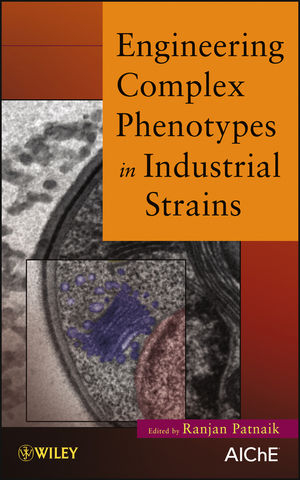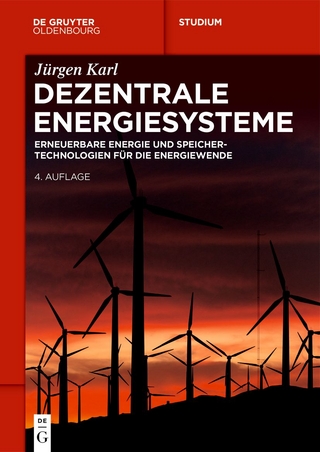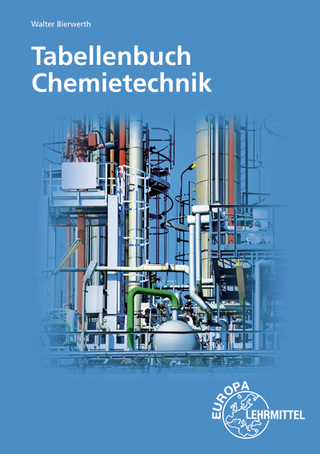
Engineering Complex Phenotypes in Industrial Strains
Wiley-AIChE (Verlag)
978-0-470-61075-6 (ISBN)
This book highlights current trends and developments in the area of engineering strains. The book details the current and future tools used in the production of bulk chemicals and biofuels from renewable biomass using green technologies. Complex phenotypes are traits in a microbe that requires multiple genetic changes to be modulated simultaneously in the microorganism’s DNA. Knowing what those genetic changes are for a given trait and how to make those changes in the most efficient way forms the motivation behind writing this book. This book explains the newer tools to develop and enable engineered strains at time scales much faster that the natural evolution process so that we can increase a cells' production of a certain substance, increase process productivity, and extend metabolic capability. This book provides a one stop platform of reference for practicing researchers in the field of industrial biotechnology. This book also explains that the commercial success of a process that uses microbial catalysts over platforms that use chemical catalysts and fossil fuels depends on the time it takes to engineer these microbes to perform the desired reaction under harsh manufacturing conditions and at rates that meets the criteria for economic feasibility.
RANJAN PATNAIK, PhD, is a chemical engineer by profession with 17 years of practical experience in the field of industrial biotechnology that includes small biotech start-ups and large enterprises. His research interests are in the field of metabolic engineering, fermentation optimization, process integration and R&D technology management. He currently heads the biofuels research group at DuPont Knowledge Center (DKC), Hyderabad, India. Prior to his current role, he had a variety of responsibilities within the biochemical sciences & engineering division of CR&D, E. I. du Pont de Nemours and Company, Wilmington, DE, USA.
Foreword vii
John Pierce
Preface ix
Contributors xi
1 Classical Strain Improvement 1
Nathan Crook and Hal S. Alper
2 Tracer-Based Analysis of Metabolic Flux Networks 35
Michael Dauner
3 Integration of “Omics” Data with Genome-Scale Metabolic Models 77
Stephen Van Dien, Priti Pharkya, and Robin Osterhout
4 Strain Improvement via Evolutionary Engineering 111
Byoungjin Kim, Jing Du, and Huimin Zhao
5 Rapid Fermentation Process Development and Optimization 133
Jun Sun and Lawrence Chew
6 The Clavulanic Acid Strain Improvement Program at DSM Anti-Infectives 169
Bert Koekman and Marcus Hans
7 Metabolic Engineering of Recombinant E. coli for the Production of 3-Hydroxypropionate 185
Tanya Warnecke Lipscomb, Matthew L. Lipscomb, Ryan T. Gill, and Michael D. Lynch
8 Complex System Engineering: A Case Study for an Unsequenced Microalga 201
Michael T. Guarnieri, Lieve M.L. Laurens, Eric P. Knoshaug, Yat-Chen Chou, Bryon S. Donohoe, and Philip T. Pienkos
9 Meiotic Recombination-Based Genome Shuffling of Saccharomyces Cerevisiae and Schefferomyces Stiptis for Increased Inhibitor Tolerance to Lignocellulosic Substrate Toxicity 233
Dominic Pinel and Vincent J.J. Martin
Index 251
| Erscheint lt. Verlag | 7.12.2012 |
|---|---|
| Sprache | englisch |
| Maße | 160 x 236 mm |
| Gewicht | 612 g |
| Themenwelt | Naturwissenschaften ► Biologie |
| Naturwissenschaften ► Chemie ► Technische Chemie | |
| Technik ► Umwelttechnik / Biotechnologie | |
| ISBN-10 | 0-470-61075-1 / 0470610751 |
| ISBN-13 | 978-0-470-61075-6 / 9780470610756 |
| Zustand | Neuware |
| Haben Sie eine Frage zum Produkt? |
aus dem Bereich


